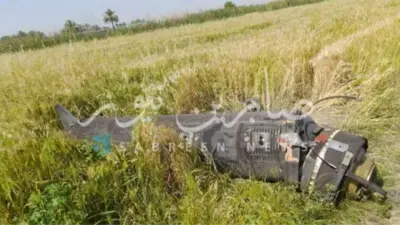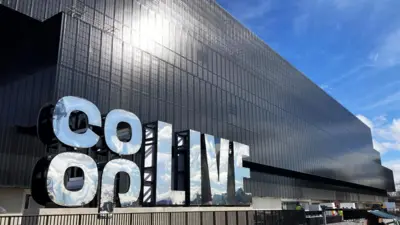We've updated our Privacy and Cookies Policy
We've made some important changes to our Privacy and Cookies Policy and we want you to know what this means for you and your data.
Warrington housing: Revised green belt plans backed
- By Phil McCann
- Cheshire Political Reporter, BBC News
Plans for nearly 15,000 new homes across Warrington have been approved by councillors.
The borough's council cut the number of homes earmarked for the green belt, but 5% of the land was still earmarked for housing.
Opposition councillors warned some villages would "lose their identity" but senior councillor Hitesh Patel said the council would "do everything we can" to protect the countryside.
A public consultation will now begin.
Labour-led Warrington Borough Council faced protests when it approved the last version of its Local Plan, but paused the process in 2020 to "reflect" on the impact of the Covid-19 pandemic and proposed government planning reforms.
The new version of the plan involves building on 1,180 acres (480 hectares) of green belt land, which is less than half the amount that would have been developed under the previous plan.
Land has been earmarked for a total of 14,688 homes to be built over 18 years across the borough under the revised plan, down from the 18,900 across 20 years previously proposed.
'Hampered'
Plans for a new "garden suburb" near the M6 Lymm interchange at Appleton have also been scaled back and a new port development by the River Mersey and Manchester Ship Canal has been scrapped.
Instead, 1,310 homes would be built on the site of the Fiddler's Ferry power station, which closed in 2020, putting pressure on the council to redraw its housing plan.
Part of that land would also be earmarked for business use.
Mr Patel, who has responsibility for the plan, said "no-one wants to build on green belt land and we will do everything we can to minimise this, but we are hampered by government housing targets".
"The vast majority of house building will be in urban areas and the town centre," he added.
Leader of the opposition Conservative group, Kath Buckley, said "villages and various areas will actually lose their identity", adding: "There are other areas that can be utilised first before taking green belt."
The ruling Labour Party and the Liberal Democrats voted to send the plan out to a public consultation, but the Conservatives were opposed.
Council officials expect it to come into force in 2023, following a public consultation and an examination by a government planning inspector.
Top Stories
Features & Analysis
Most read
Content is not available








